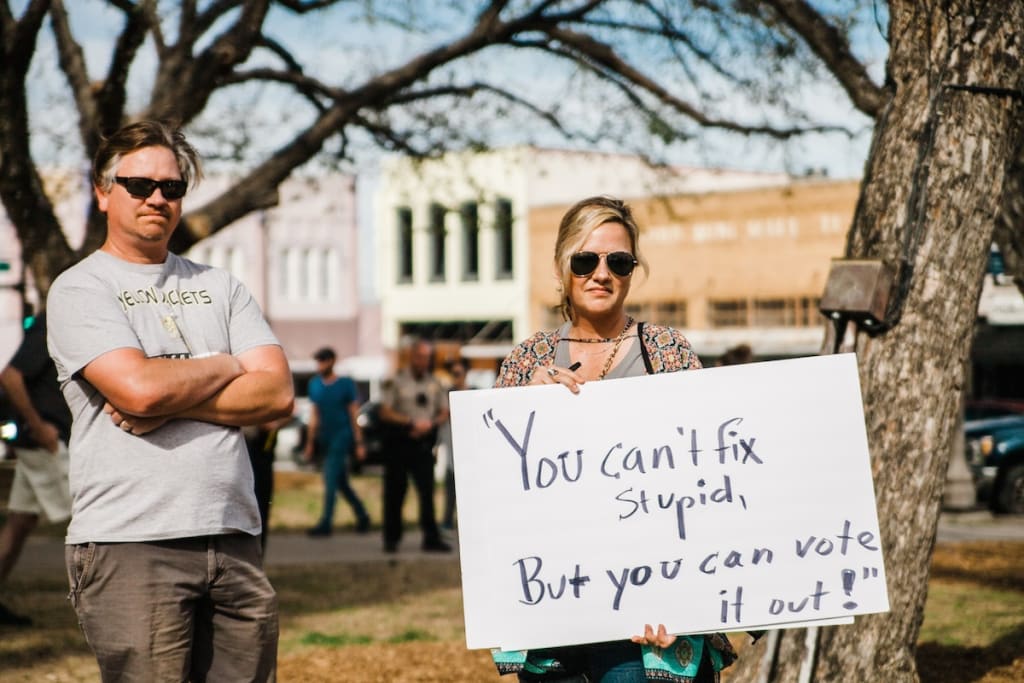
The 24th Amendment is what stops Congress and any state from allowing the right to vote to be predicated on a payment poll of taxes, or any kind of tax for that matter. Voting is supposed to be free. Congress wrote the 24th Amendment, and it was proposed to the States on August 27, 1962. It was then passed on January 23, 1964. The Southern states who used to be a part of the Confederacy, had adopted poll taxes in the late 19th Century, because they wanted to make sure that former slaves did not vote much if at all.
It would seem that new Constitutions from 1890 to 1908 were adopted which helped regain control of state legislators, decades after the end of Reconstruction. The 24th Amendment was ratified in 1964 with five states still retaining a poll tax, and these States were Alabama, Arkansas, Mississippi, Texas, and Virginia. But by 1966, the poll tax was ruled unconstitutional, because it broke the Equal Protection Clause rule, in the Harper vs Virginia, Board of Elections, with a 6-3 ruling by the US Supreme Court. This Amendment made sure that poll taxes were no longer an option, as by 1966 anybody could vote, provided they were registered—even women.
It could be said that the 24th Amendment would make sure that anybody and everybody could get to a poll and vote without being taxed over voting. This was ruled unconstitutional. The Southern States had a bad habit called racism that meant they would do anything to stop the Black population from voting, because three years after the Civil War, Southern State governments decided to adopt poll taxes in 1868.
The poll tax had existed from 1868 to 1966 when it ended, since the 60s were a historical time frame for integration. Only poor white voters and black voters were affected by something as ridiculous as a poll tax. The government ignored poll taxes from 1900 to 1937, but the power was once again in the hands of the wealthy that could pay the poll taxes. Populist Southern politicians wanted to discourage certain social groups and classes from voting after all. President Franklin D. Roosevelt had spoken out against the tax, calling it a remnant of the Revolutionary period. In 1939, the government attempted to repeal the poll tax, but Southern Block lawmakers decided to tie up this vote just to maintain their long tenure in power.
Abolishing the poll tax was a huge advancement in government power, because originally, the Constitution originally gave only men the right to vote. Also, the 19th Amendment came along in 1920, giving women the right to vote. The widespread voting in the 2008 election of President Barack Obama was a result of the previous laws changing about the poll tax, which encouraged more people to vote. The poll tax was subsequently abolished as a precursor to the right to vote. Anybody over the age of 18 can vote in the political climate today. When I was 18, I headed straight to the polls as I felt that civic participation was important to engage in the second you are allowed to do so. If more people voted, and paid attention, real change could happen. Some candidates have been in office way too long. We need more diversity in Congress anyway. Average people need to start running for office. Voting puts the people in control, because even rich people need to vote. Not voting does not do you a favor, even if it seems bleak that your candidate might not win due to the current political party system.
Works Cited
About the Creator
Iria Vasquez-Paez
I have a B.A. in creative writing from San Francisco State. Can people please donate? I'm very low-income. I need to start an escape the Ferengi plan.






Comments
There are no comments for this story
Be the first to respond and start the conversation.